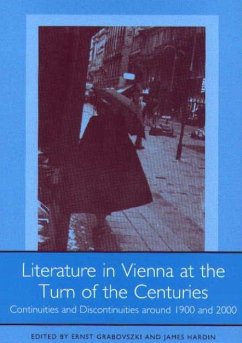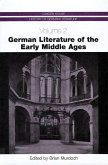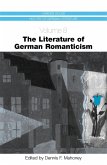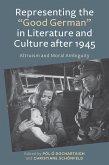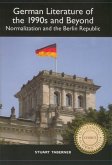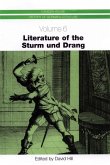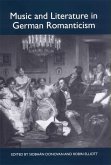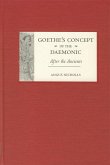Insightful essays on the striking resemblances between the Viennese literary/cultural scene in 1900 and 100 years later.
This book of new essays by widely-published scholars from the United States, Great Britain, Germany, and Austria examines the artistic, social, political, and historical continuities and discontinuities in Viennese literature during the periods around 1900 and 2000. It takes its impetus from the idea that both turns of the century are turning points in the development of Austrian literature and history. The essays show that in both periods literature not only reflects societal conditions and political issues, but also serves to criticize them. Ernst Grabovszki's introduction sets the context of literature in Vienna in 1900 and 2000, and is followed by essays exploring the followingtopics bearing on the city's literature across the two periods: writing about Vienna (Janet Stewart); art and architecture (Douglas Crow); psychoanalysis and the literature of Vienna (Thomas Paul Bonfiglio); poetry in Vienna fromHofmannsthal to Jandl (Rüdiger Görner); Austrian cinema culture (Willy Riemer); Austrian-Jewish culture (Hillary Hope Herzog and Todd Herzog); Austrian women's writing (Dagmar C. G. Lorenz); Karl Kraus and Robert Menasse as critical observers of their times (Geoffrey C. Howes); and Venice as mediator between the Viennese metropolis and the provinces (John Pizer). The figures treated range from Arthur Schnitzler, Hugo von Hofmannsthal, Sigmund Freud, Theodor Herzl, Karl Kraus, Peter Altenberg, Franz Grillparzer, Joseph Roth, Bertha von Suttner, and Marie von Ebner-Eschenbach in the earlier fin de siècle to Elfriede Jelinek, Robert Schindel, Robert Menasse, Josef Haslinger, Ernst Jandl, Friedensreich Hundertwasser, and Marlene Streeruwitz in the current period.
Ernst Grabovszki teaches at the University of Vienna. James Hardin is professor emeritus of German at the University of South Carolina.
This book of new essays by widely-published scholars from the United States, Great Britain, Germany, and Austria examines the artistic, social, political, and historical continuities and discontinuities in Viennese literature during the periods around 1900 and 2000. It takes its impetus from the idea that both turns of the century are turning points in the development of Austrian literature and history. The essays show that in both periods literature not only reflects societal conditions and political issues, but also serves to criticize them. Ernst Grabovszki's introduction sets the context of literature in Vienna in 1900 and 2000, and is followed by essays exploring the followingtopics bearing on the city's literature across the two periods: writing about Vienna (Janet Stewart); art and architecture (Douglas Crow); psychoanalysis and the literature of Vienna (Thomas Paul Bonfiglio); poetry in Vienna fromHofmannsthal to Jandl (Rüdiger Görner); Austrian cinema culture (Willy Riemer); Austrian-Jewish culture (Hillary Hope Herzog and Todd Herzog); Austrian women's writing (Dagmar C. G. Lorenz); Karl Kraus and Robert Menasse as critical observers of their times (Geoffrey C. Howes); and Venice as mediator between the Viennese metropolis and the provinces (John Pizer). The figures treated range from Arthur Schnitzler, Hugo von Hofmannsthal, Sigmund Freud, Theodor Herzl, Karl Kraus, Peter Altenberg, Franz Grillparzer, Joseph Roth, Bertha von Suttner, and Marie von Ebner-Eschenbach in the earlier fin de siècle to Elfriede Jelinek, Robert Schindel, Robert Menasse, Josef Haslinger, Ernst Jandl, Friedensreich Hundertwasser, and Marlene Streeruwitz in the current period.
Ernst Grabovszki teaches at the University of Vienna. James Hardin is professor emeritus of German at the University of South Carolina.
Dieser Download kann aus rechtlichen Gründen nur mit Rechnungsadresse in A, D ausgeliefert werden.

